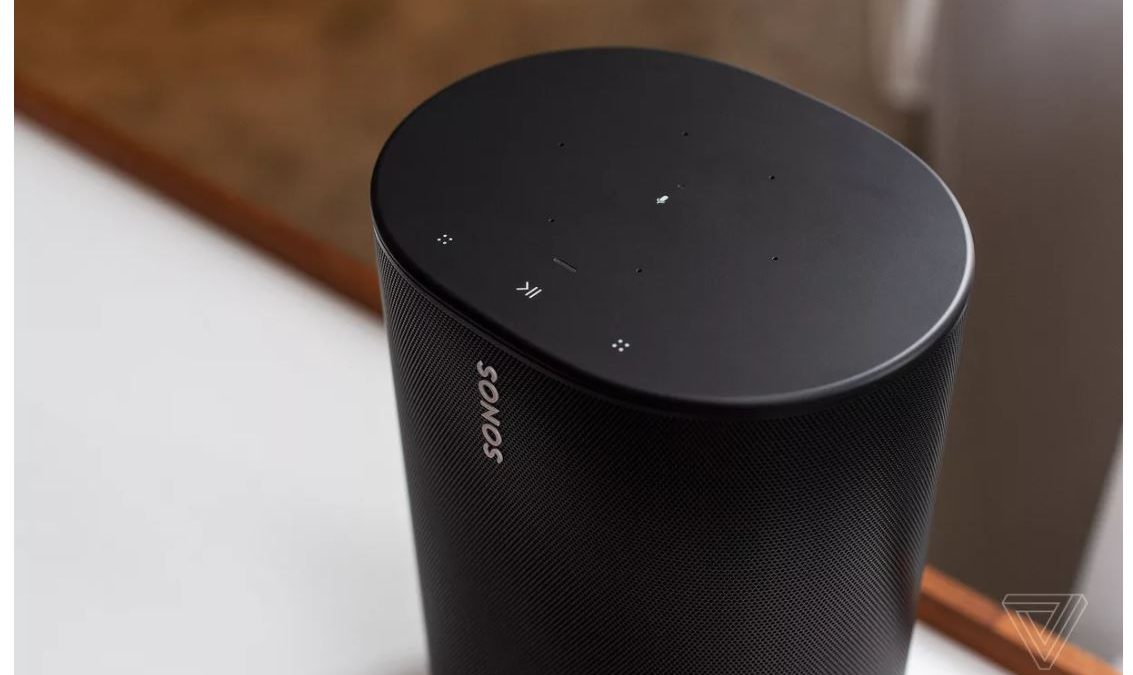- Intellectual Property Services
- +91-998-809-1807
- info@theipcrew.com
Sonos sues Google for infringing five more wireless audio patents

A new Project Titan Patent from Apple covers an Autonomous Navigation System that includes an ‘Intention Recognition’ Module
September 30, 2020
Patent Office looks to AI for image searches
October 1, 2020Sonos has filed another patent lawsuit against Google, alleging that the search giant is infringing five wireless audio patents across the entire line of Nest and Chromecast products. The move comes on the eve of Google’s fall hardware event on September 30th, where it is expected to announce a new Chromecast and Nest smart speaker alongside new Pixel phones.
Sonos filed its first patent lawsuits against Google in January in California federal court and with the International Trade Commission; the federal case has been put on hold while the ITC reaches a decision on whether to block Google’s allegedly infringing products from market. The new case is filed only in the federal court for the Western District of Texas — an emerging patent lawsuit hotspot — and represents a more aggressive approach from Sonos.
“We think it’s important to show the depth and breadth of Google’s copying,” says Eddie Lazarus, Sonos’ chief legal officer. “We showed them claim charts on 100 patents that we claimed they were infringing, all to no avail.”
Google, of course, says it will fight back; it has countersued Sonos in the initial case. “Sonos has made misleading statements about our history of working together,” says Google spokesperson Jose Castaneda. “Our technology and devices were designed independently. We deny their claims vigorously, and will be defending against them.”
Sonos has long been vocal about the power of big platform companies like Google to push around smaller companies. In particular, Sonos alleges the tech giants routinely copy technology because the penalties are so low compared to the benefits of flooding the market with cheap loss-leader products and gaining market share. CEO Patrick Spence testified to the House antitrust subcommittee earlier this year about what’s called “efficient infringement” — and this new case is a reflection of how strongly the company thinks it should be curtailed.
“Efficient infringement is a very big problem,” says Lazarus. “That’s why we went to the ITC and now Texas — to shorten the process and get resolution as quickly as possible.” (To be clear, “short” is a relative term in patent law — Lazarus estimates this new case will take two years.)
The patents in Sonos’ first lawsuit covered the foundations of wireless audio systems: setup, playing in sync, creating stereo pairs. Sonos is particularly confident in those patents because it’s previously sued Denon for infringing them and won — Lazarus calls them “battle-tested.”
The patents in the new case are more recent — one of them was issued just two weeks ago, although it covers work started in 2011 — and relate to more modern wireless speaker system features, like controlling streaming music from a secondary device like a phone, automatic speaker EQ, and speaker group management and “zone scene” presets. Many of them seem like patents on the basics of smart speaker control — setting the volume on a speaker from your phone, for example — but Lazarus says he’s not worried about Google challenging them.
“If they seek to challenge the patents on obviousness grounds, we believe we will win,” he says. “We believe that most people involved in wireless home audio today infringe on our patents in one way or the other.” Lazarus says Sonos has presented Amazon with similar patent claims and hopes to resolve them. “We were ahead of our time. These technologies weren’t commonplace when Sonos designed them.”
Of course, another lawsuit will further strain the relationship between Google and Sonos, which supports the Google Assistant on its speakers, but Sonos has tried to keep the legal fight out of product discussions. “The goal is to have a positive relationship with Google, one in which they recognize the value of our inventions and we work on consumer-friendly innovations in the future,” says Lazarus. “We’ve tried to keep the two sides of the house separate.”
“If you look at the history of Sonos, we’re very reluctant to sue,” says Lazarus. “This is an option of last resort — the number of litigations we’ve started, you can count on one hand.”
Article Source: https://www.theverge.com/2020/9/29/21492671/sonos-google-patents-infringement-lawsuit-wireless-audio

